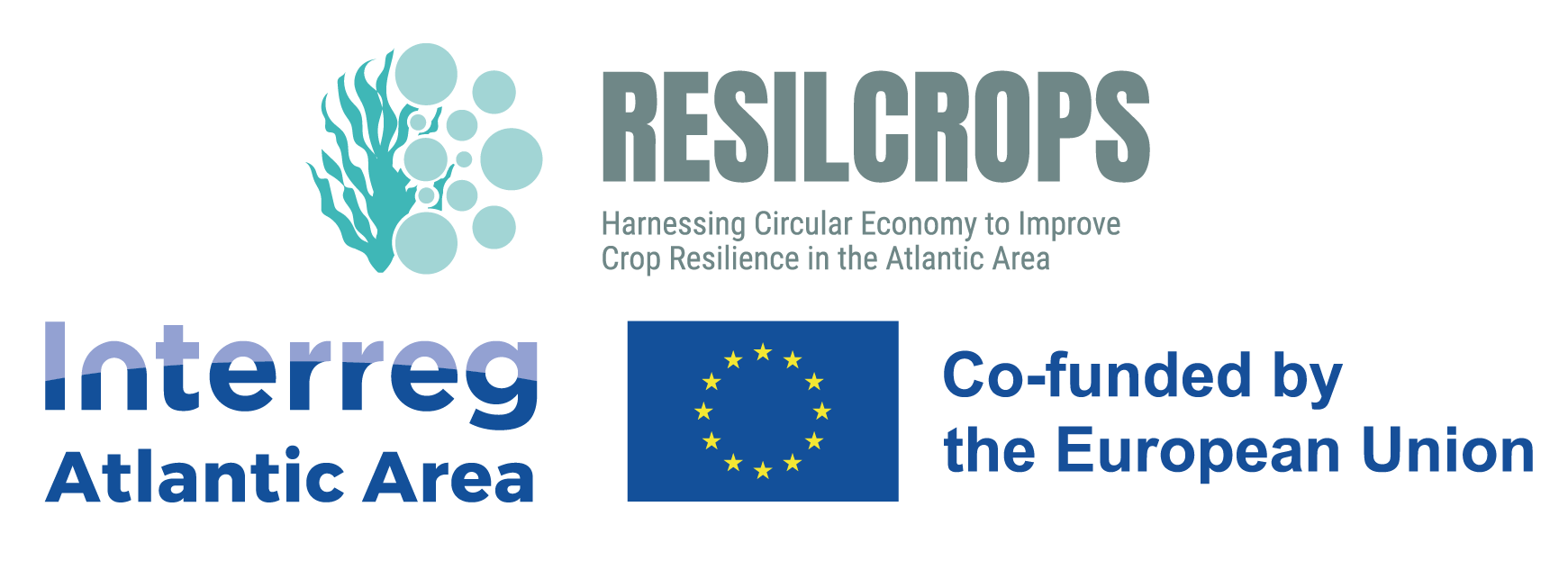Partners
The Institute of Natural Products and Agrobiology (IPNA) is part of the network of research centres of the Spanish National Research Council (CSIC)
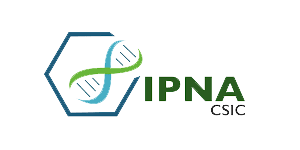
Avda. Astrofísico Francisco Sánchez 3, 38206 San Cristóbal de La Laguna, Santa Cruz de Tenerife, España
(+34) 922 256 847
www.ipna.csic.es
More information
The IPNA’s activities range from basic research to technological development. Its objectives are varied, given that it is a multidisciplinary centre with three main scientific and technical areas:
Chemical Sciences and Technologies. Chemical synthesis, biological chemistry and medical chemistry, organometallic chemistry, catalysis and materials chemistry, and nanotechnology.
Agricultural Sciences. Water in agriculture, soil quality, plant nutrition and physiology, plant pathology and fruit growing.
Natural Resources. Biology of terrestrial organisms and systems, as well as earth sciences.
The aims of the IPNA are scientific and technological research, the transfer of knowledge to industry and society, the training of research personnel and the dissemination of science to society.
The University of La Laguna is the oldest higher education institution in the Canary Islands, with over two hundred years of history

Pabellón de Gobierno, C/ Padre Herrera s/n Apartado Postal 456 38200, San Cristóbal de La Laguna Santa Cruz de Tenerife - España
(+34) 922 31 90 00
www.ull.es
More information
The decree establishing the university dates back to 11 March 1792, signed by King Charles IV. Since then, it has gone through several names and stages, until it obtained its current name in 1913.
Two hundred years after its foundation, the University of La Laguna continues to be a benchmark in the Canary Islands community, which, with the Atlantic as its bridge, reaches out to the world. Currently, this public institution is made up of more than 25,000 people, including students, teaching staff, and administrative and service personnel.
Its catalogue of degrees includes 46 bachelor’s degrees, 7 double degrees, 38 master’s degrees, 1 double master’s degree, 22 doctoral programmes and 15 proprietary degrees.
The ULL is undergoing a process of internal renewal in which new information technologies and telematic education will be promoted, centralised in its Virtual Teaching Unit.
The strategic tricontinental position of the Canary Islands encourages its universities to adopt a position of reference and leadership in the Atlantic region they occupy.
The University of Lisbon (ULisboa) is the largest and most prestigious university in Portugal
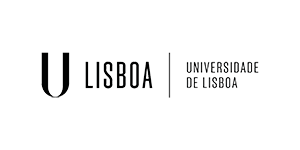
Alameda da Universidade 1649-004 Lisboa, Portugal
+351 217 967 624
/www.ulisboa.pt
More Information
Merger of the former Technical University of Lisbon and the University of Lisbon.
ULisboa brings together diverse areas of knowledge and is ideally positioned to facilitate the contemporary evolution of science, technology, the arts and the humanities.
The quality of teaching, research, innovation and culture at ULisboa are attracting an increasing number of talented individuals from around the world.
ULisboa is committed to strengthening its capacity to act and exert influence in strategic international areas, particularly through the development of new partnerships with Brazil, China and the Community of Portuguese Language Countries.
South East Technological University drives innovation

Cork Rd, Lisduggan Big, Waterford, Irlanda
+353 818 121 212
www.setu.ie
More information
Through inclusive education and high-quality research, South East Technological University drives innovation, empowers communities, and delivers transformative impact for the south east of Ireland.
SETU, as a leading Technological University, will continually elevate and enhance its performance across teaching, research & innovation, and engagement, supported by robust governance, management and operational excellence.
In this way, the University will create, enable and sustain the south east as a world-class innovation region and will have transformative impact on our community, our region, and the wider world.
The University of Madeira (UMa) aims to find appropriate solutions within a framework of responsibility, fairness and sustainability

Praca do Município, São Martinho, 9000-072 Funchal, Portugal
+351 291 209 400
www.uma.pt
More information
The University continues to carry out scientific research activities, promoting the dissemination and social and economic value of knowledge and technological innovation. It guarantees human development at the highest level in cultural, scientific, artistic, technical and professional aspects, offering university degree programmes, CTeSP programmes and other non-degree courses. It seeks to prepare its students for the challenges of global society and lifelong learning by imparting scientific knowledge, technical skills and cross-disciplinary training.
The aim is for all graduates to be global citizens who are creative and entrepreneurial, responsible and professional, tolerant and attentive to the environmental, cultural and human challenges of a society that aspires to be sustainable and equitable. To this end, the UMa promotes and supports initiatives and programmes that contribute to the integration of its graduates into the labour market and foster their spirit of initiative and entrepreneurship, as well as the mobility of students and graduates, especially within the European Higher Education Area.
The University of Algarve (UAlg) is the leading higher education institution in southern Portugal
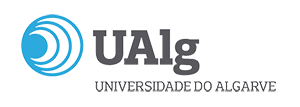
Estr. da Penha, 8005-139 Faro, Portugal
(+351) 289 800 000
www.ualg.pt
More information
The University of Algarve (UAlg) is the leading higher education institution in southern Portugal. Renowned for its research excellence, teaching quality and close relationship with society, UAlg offers courses in various fields and has extensive facilities, infrastructure and equipment that provide excellent conditions for study, work, research and socialising.
The University of Algarve is a unique institution, above all because it is the only Portuguese university established by law of the Assembly of the Republic, with the unanimous approval of Parliament. The Academy is recognised for the quality of its teaching in various areas, especially in Health Sciences and Technologies, Economics, Management and Tourism, Social and Educational Sciences, and Exact and Natural Sciences.
A benchmark for quality scientific research in Dairy Science and Technology
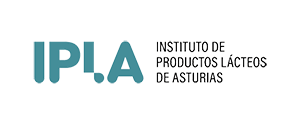
C. Francisco Pintado Fe, 33011 Oviedo, Asturias, España
(+34) 985 892 131
www.ipla.csic.es
More information
The Asturias Dairy Products Institute (IPLA) belongs to the Food Science and Technology Area of the Spanish National Research Council (CSIC). It was inaugurated in April 1990 and is structured as an independent institute with a board of trustees. The IPLA is located on the CSIC Campus in Oviedo.
.
The IPLA’s mission is to generate knowledge through high-quality scientific research in Dairy Product Science and Technology in order to promote and/or improve consumer health and well-being, the competitiveness of the CSIC in the agri-food sector, and the transfer of knowledge to society and the productive sector.
The NOVA School of Science and Technology is recognised for its excellence in research and the quality of its courses

Largo da Torre, 2829-516 Caparica, Portugal
(+351) 212 948 300
www.fct.unl.pt
More Information
The NOVA School of Science and Technology (NOVA FCT) is one of the three largest and most prestigious schools of Engineering and Sciences in Portugal. It is located 15 minutes away from Lisbon, is renowned for its excellence in research, for the quality of its courses and for the large employability of its graduates (graduates, masters, doctors).
NOVA FCT, with about 8500 students, it has one of the best university campuses and is distinguished by a culture of excellent teacher-student relationship and an intense academic life with many different cultural and sport activities.
All courses are accredited by the A3ES (Agency for Assessment and Accreditation of Higher Education) and all Engineering courses are recognized by the Order of Engineers, FEANI (Federation of Professional Engineers that unites national engineering associations from 33 European Higher Education Area (EHEA) countries) and EUR-ACE (European Accredited Engineer).
NOVA FCT is structured in 13 Departments and 18 Research Centers, offering 120 study cycles (22 Bachelor’s, 11 Integrated Master’s (no applications available for the academic year 2021/2022), 49 Master’s and 32 PhDs).
Polymaris offers innovation capabilities and ensures the viability and industrialisation of its innovative biomolecules
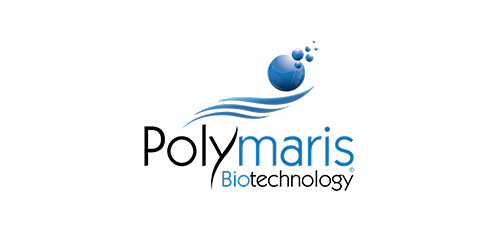
160 Rue Pierre Rivoalon, 29200 Brest, Francia
(+33) 229 005 943
www.polymaris.com
More information
In 2008, the company’s founders, Anthony Courtois and Bertrand Thollas, joined forces with Antoine Gedouin in 2011, who shared the principle of my vision: that of a marine environment rich in biodiversity that we all wanted to explore. Even if this means going against the tide…
They all contain microorganisms, and they are all toxic. The Brittany coast is no exception.
The microorganisms we select are perfectly adapted to cultivation conditions that can be transferred to an industrial scale.
Since 2008, Polymaris has been dedicated to the discovery, characterisation and selection of innovative molecules derived from marine microorganisms. This selection was carried out under optimal conditions that Polymaris has developed, mastered and industrialised.
This strategy of working with the invisible world has no impact on biodiversity or ecosystems.
Associated Partners

Cabildo Insular de Tenerife
Plaza de España, s/n, 38003 Santa Cruz de Tenerife, España
(+34) 922 239 500
www.tenerife.es

Banco Español de Algas
Muelle de Taliarte, s/n, 35214 Telde, Las Palmas, España
(+34) 928 133 290
marinebiotechnology.org

Cooperativa Platanera de Canarias
Av. Francisco la Roche, 11, 38001 Santa Cruz de Tenerife, España
(+34) 922 286 300
coplaca.es



